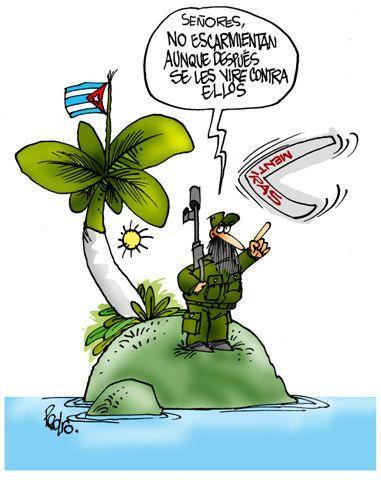
Just nine days before leaving office in 2021, then U.S. President Donald Trump put Cuba back on the list of countries sponsoring terrorism.
He needed a legal justification to make sense of the reincorporation, so he alluded to Cuba's refusal of a request to extradite members of Colombia's National Liberation Army (ELN) following a January 2019 bombing at a police academy in Bogota.
They obviated, in their statement, Cuba's status as a guarantor in the peace dialogues, first between the Government and the Armed Forces of Colombia-People's Army (FARC-EP), which concluded with the historic Peace Agreement of 2016, and then with members of the ELN, who had been in our country since 2018.
What was going on at that time?
One: ELN members did not arrive in Cuba fleeing, but with the corresponding authorizations from the Colombian State.
Two: Colombia, in addition to breaking off the dialogue with the ELN, ignored a previously agreed protocol of rupture for these cases, delegitimized the dialogue delegation and issued arrest and extradition warrants against them.
For Cuba, it was contradictory that the Government of Colombia recognized, on several occasions, both publicly and privately, its role of guarantor in the peace process with the FARC-EP and, however, ignored agreements signed with our country, also as guarantors, in the peace process with the ELN.
The government of Iván Duque reversed all the progress made in the negotiations, misinterpreted the role of Cuba, tried to deceive the international community, and the United States -as always- took advantage of the context to make this decision that not only limited the possibilities of rapprochement with the incoming administration, but also caused incalculable damage to the Cuban population. Not to mention how immoral it is for the United States to label others as terrorists.
According to the information provided by the Deputy Director General for the United States of the Cuban Ministry of Foreign Affairs, Johana Tablada, in June 2021, for the countries included in the spurious list "the consequences have to do with the restriction of exports, the elimination of certain commercial benefits and the obtaining of credits in international financial institutions, as well as the prohibition of arms exports".
The BBC in Spanish explained that, with this unilateral qualification; financial institutions have another reason to avoid operations with Cuba; insurers may suspend coverage of transactions; there is more scrutiny on operations with the nation, which will result in fewer governments and companies agreeing to have a normal relationship with the island.
In addition, "flagged" countries cannot access loans from the International Monetary Fund or other global institutions. Likewise, for U.S. companies it is an obstacle to the opportunities to export, import or supply services to our country.
In the particular case of Cuba, these sanctions were added to those of the economic, commercial and financial blockade that has been strangling the Cuban economy for more than six decades. The hostility od the United States remains, even if the color of the party in power changes.
However, something has changed, but in Colombia. The current government declared as legitimate the ELN's dialogue delegation in Cuban territory, it is no longer asking for their extradition, but that they will sit down again to negotiate. In addition, Gustavo Petro's administration recognizes Cuba as a "territory of peace" and deplores the fact that it is on the list of countries sponsoring terrorism.
What argument will the United States come up with now to keep Cuba on its fabricated list?
Translated by ESTI















